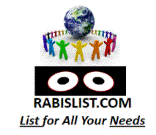
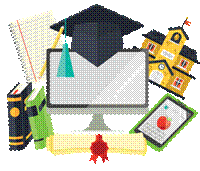
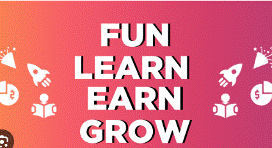
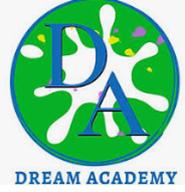
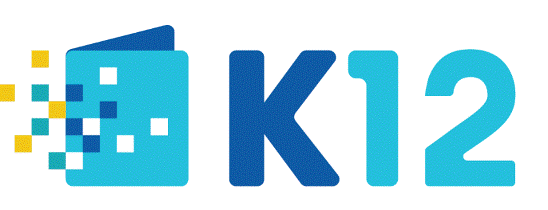
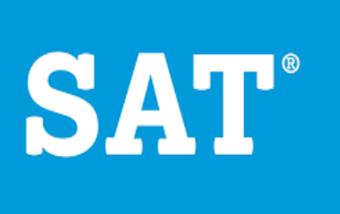
|
CONTACT 732-281-7122 / 732-423-8052 |
|
RABISLIST-GLOBAL-GURUKUL-K12-KINDER GARTEN |
|
Elementary school is where the exciting journey of formal education begins for kids aged 5 to 11. It’s like the building blocks of their learning! At RABISLIST.COM, we offer a fantastic online curriculum designed specifically for students in grades Kindergarten through Grade 5.
This is an incredibly important time for children as it sets the foundation for their future success. In our elementary school curriculum, we focus on essential academic subjects like Math, Science, English, and Social Studies. These subjects help children develop their knowledge and skills in a fun and engaging way.
Let’s take a closer look at what each grade level offers:
Elementary school is where the exciting journey of formal education begins for kids aged 5 to 11.
It’s like the building blocks of their learning! At RABISLIST.COM, we offer a fantastic online curriculum designed specifically for students in grades Kindergarten through Grade 5.
This is an incredibly important time for children as it sets the foundation for their future success. In our elementary school curriculum, we focus on essential academic subjects like Math, Science, English, and Social Studies. These subjects help children develop their knowledge and skills in a fun and engaging way.
Let’s take a closer look at what each grade level offers:
Kindergarten Online Elementary Courses:
Enrolling your child for kindergarten is the first step toward laying their educational foundation. Kindergarten is a preschool educational approach that conventionally includes activities such as playing, singing, drawing, and practical activities that help nurture social skills.
In addition to academic learning, children are taught to develop skills that will enable them to grow stronger and prepare them for higher grades. Subjects that are taught as part of Kindergarten curriculum include Math, Science, English and Social Studies.
RABISLIST.COM offers the hallmark of truly effective traditional education programs.
Does Your Child Need Help Coping? Do you think your child has special needs? Does your child have a hard time keeping up with the rest of the children?
If yes, then we can help you. RABISLIST.COM provides a Prescriptive/Adaptive program that helps students with special needs cope with their peers.
It has been designed as a self-paced learning system that focuses on the strengths and weaknesses of each individual child.
Adhering to standards set by the No Child Left Behind Act, this system has been designed to improve student performance.
By allowing them to set the pace of learning, children are encouraged to explore their curriculum in a more comprehensive manner.
This helps foster a learning process that is more holistic in nature as opposed to learning for the sole purpose of achieving a particular grade.
For any communication you are welcome to contact our Education Counselor, who will assist you in resolving your queries, enrollment process.
You can also call us at 732-281-7122
Kindly interact with your child daily and check his / her diary everyday to know any information from school. Help your child frame new words and related sentences using sound words and sound blends. Encourage your child to develop reading habits with correct pronunciation and intonation.
Give stress on error free work and legible handwriting. Maintain the notebook and cover properly with name slips throughout the year. Label all the belongings of your child with permanent marker. Practise different patterns done in class regularly at home. Teach your child basic toilet habits and give him / her an extra dress in the bag. Encourage your child for self study. Make the child feel special
OBJECTIVES
A. Language Development 1. To express self clearly and confidently during conversation. 2. To frame sentences and stories using the child‟s imagination. 3. To recite poems with proper expressions and voice modulation. 4. To listen attentively and follow instructions accordingly. 5. To develop comprehensive power of the students.
B. Cognitive Development
1. To apply knowledge of numbers in different ways. 2. To implement various Mathematical concepts in daily life. 3. To show interest and create awareness about Environmental concepts. 4. To participate in discussions, activities and experiments.
C. Creative and Expressive arts
1. To develop creativity and aesthetic sense. 2. To use originality and imagination while drawing and painting.
D. Physical Development 1. To participate actively in different games. 2. To encourage for simple exercises. E. Health and Hygiene 1. To look after the toilet needs and wash hands wherever necessary. 2. To take care of the cleanliness of the surrounding.
F. Nutrition 1. To bring nutritious food. 2. To understand importance of healthy food.
G. Socio Emotional Development 1. To show good manner. 2. To understand role of a good citizen and the importance of family relations. 3. To develop respect and love for nation and religion
AREAS OF OBSERVATION
LANGUAGE DEVELOPMENT Listening skills Speaking skills Reading skills Writing skills
COGNITIVE DEVELOPMENT Basic concepts Number concepts Environmental concepts Thinking skills
CREATIVE AND EXPRESSIVE ART Art and Craft Music, Song and Dance
PHYSICAL DEVELOPMENT HEALTH AND HYGIENE NUTRITION
SOCIO EMOTIONAL DEVELOPMENT VALUE EDUCATION
|
|
K12-USA Courses
ENGLISH MATHS SCIENCE SOCIAL STUDIES
Kindergarten English Course Outline Following the Common Core State Standards for kindergarten English, this class demonstrates grammatically correct speaking and writing, along with correct capitalization, spelling, and punctuation while writing.
Students’ vocabulary is improved upon by clarifying words with multiple meanings and how words in a sentence relate to each other. The students will learn phonics to sound out words while reading. The students will be exposed to emergent-reader books and asked to answer questions about the plot, key ideas, and details of story. Students will be able to explain relationships between text and the illustrations, compare and contrast two different books on the same topic, and participate in group reading activities.
By the end of the class, students should be comfortable holding collaborative discussions about age-appropriate topics, be able to answer questions about a story read aloud to them, be comfortable asking for help or clarification on a topic, and be able to tell a story through a combination of text, drawings, and spoken words.'
Course Outline
Course Introduction Welcome Course Description Assessments
The Alphabet – M, W, B and P
The Alphabet Reading Storybooks Reading Poetry Handout: Apple Poem Assignment: Apple Poem Author and Illustrator
Sight Words Main Idea Comparing Texts
Morris the Mouse The Alphabet Morris the Mouse Willy the Worm Bessy the Bear Pinky the Pig Rhyming Words Willy the Worm Bessy the Bear Pinky the Pig
Rhyming Words The Alphabet – N, D, T and A The Alphabet – H, Y, S and E The Alphabet – Z, V, I and F The Alphabet – L, G, O and K The Alphabet – J, R, X and U
The Alphabet and Sounds – C, Q, Ch, Th, Sh, and Wh Sight Words, Poems, Author and Illustrator, Comparing
Reading Storybooks Reading Poetry Author and Illustrator Sight Words Main Idea Comparing Texts
Opinion, Sequences, Prepositions and Sorting
Opinion Sequences Prepositions Sorting
Plurals, Syllables, Synonyms and Antonyms
Plurals Syllables Introduction Syllables Part 2 (Closed Syllables) Synonyms Antonyms
Capitalization, Punctuation, Your Name and Predictions
Capital Letters Punctuation Your Name Predictions
Course Evaluation Handout: Course Evalulation Assignment: Course Evaluation
Mathematics
Kindergarten Mathematics Course Outline This course is aligned with the Common Core Standards for Kindergarten mathematics. The math course for this grade focuses on two main ideas.
First, showing, relating, and using whole numbers. Second, describing shapes and spaces. In order to accomplish these two main goals students will learn to know number names, count objects, and compare numbers. They will focus on using the numbers 11-19 to build an understanding of place value.
The students will understand that addition means putting together and subtraction means taking from or apart. The students will practice describing and comparing measurable attributes such as height and weight. The students will also practice identifying, analyzing, comparing, and creating shapes.
They will also use appropriate terms like below, and in front of to describe the relative location of an object.
Course Outline
Course Introduction Number 0-10 Counting Comparing Numbers Addition Subtraction Numbers 11-20 and Beyond Objects And Shapes Course Evaluation
Science
Kindergarten Science Course Outline
This course is aligned with Florida’s Next Generation Sunshine State Standards for Kindergarten science. The class provides an overview of the senses, including describing the textures of different substances. The students will explore the Earth and space by learning what gravity is and its effect on objects. Students identify the moon, Sun, and stars, and they learn the differences between day and night. The students are taught how to describe and explain the differences between different objects using the properties of an object. Students practice using categories to organize different objects and learn that objects change in many different ways over time. Pushes and pulls are discussed as a way to introduce the idea of force to the students. Sound and the movements that cause it are also explained. Finally, the students will explore biology by determining if a living being is a plant or an animal. They will describe the parts of a plant and what plants and animals require to live.
Introduction My Self Earth And Space Things change Sound and Motion Plants and Animals Course Evaluation
Social Studies
UNITY BLOGS & FORMS Inquire Now Online Elementary School Kindergarten Social Studies Enroll Today Request Information
|
